High School
Senior Trip and High School Graduation
Learning to Drive
Girls
Paul Whiteman Teen Club
Temple University
How can one be objective about “coming of age” when so much associated with development is bound-up in subjective feelings, biological factors and environmental influences. The transition from childhood to adolescence is fraught with so many challenges whether they occur during the teenage years or even later. For want of a better indicator as to when I eased into the “transition” phase, I have chosen my starting high school to mark this stage because I can remember significant events that guided my early adolescence. Fortunately, or unfortunately, I don’t remember much from the two years I spent in junior high school other than playing in a saxophone trio, following baseball during the summer and not liking school any time of the year except when I had a clarinet or a saxophone in my hands.
As I continue this tale, the reader will see that it took me years to make a successful transition and then I was faced with more years until I passed through the development of the frontal lobe, a.k.a. the prefrontal cortex. In other words “adulthood.” But that’s already getting head of myself.
So at the age of fourteen, I began my freshman year at Frankford High School in Philadelphia, PA.
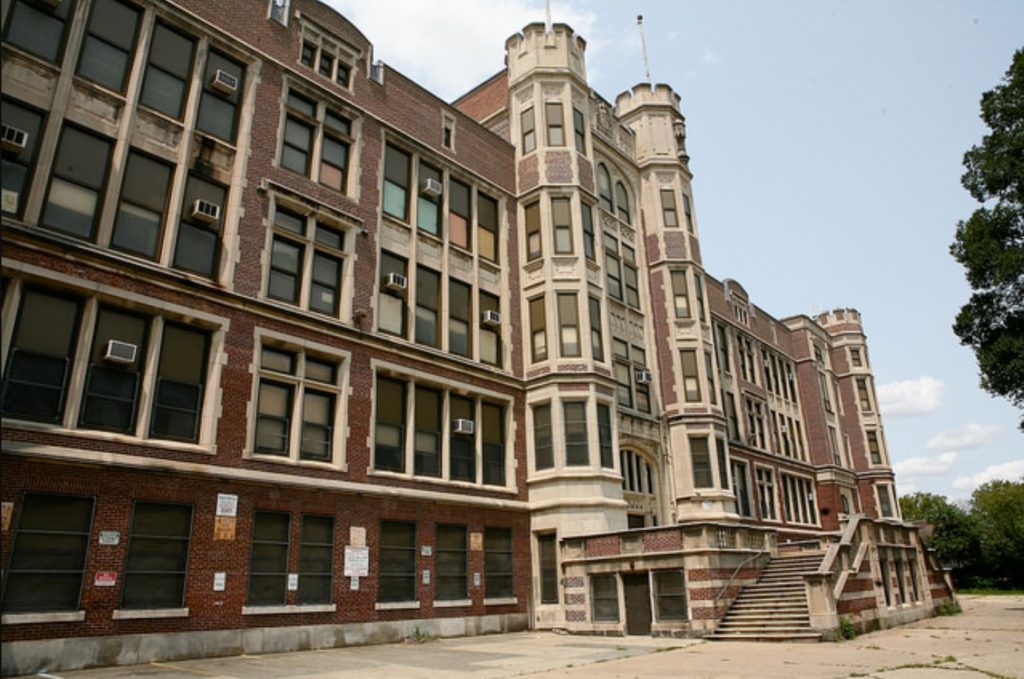
My first impressions of Frankford High were of size: it was a huge, block-long structure with an enrollment of some 2800 students, a far cry from my elementary and junior high schools. Inside were more rooms than I had ever been in and I thought I would never find my way around. Fellow students were always dressed even though there hadn’t been a dress code to follow. Upon seeing the upper-classmen, one followed suit, so too speak. I remember wearing starched white shirts with ties, pleated trousers with cuffs and sports jackets every day for three years. Getting from home to high school and back required taking a trolley and then switching to a bus for the 45 minute trip. That provided me with the opportunity to observe other commuters (some students and others not) and to fantasize about talking to and meeting them. Given that everything was new and that I was shy, there was no chance that I would speak up and possibly be disappointed by the responses or lack thereof.
Before long I became familiar with my classmates and remember two with whom I was really impressed. One was Betty L. who sat in front of me in several classes. She was so verbal and smart; the other was “Chuck” S. who was very popular and had a great hair style. One day when I entered the men’s room between classes, I saw him wetting, combing and styling his long blond hair: that, I then decided, would be my style too. Oscar Wilde was correct in his quote about imitation and flattery.
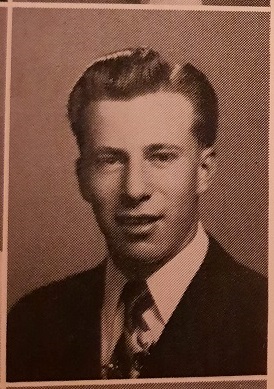
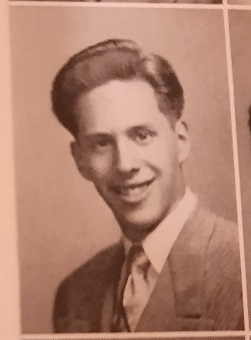
(When I saw pictures of Chuck taken during a 60th anniversary class reunion, he hadn’t changed much: bright smile, engaging, handsome and, as always, very personable and engaging. Over the years the pompadours disappeared little by little until the shape of our heads became clearly defined.)
Before long I joined the high school orchestra. Unfortunately, the days of performing with the sax trio ended when the three of us enrolled in different high schools. As one of the clarinet players and I were leaving rehearsal one day, he said to me, in a nice way, “you know, beginning on the sax, you can never become very good on the clarinet.” That put me on a path to prove him wrong.
A confidence builder came when I was chosen to participate in the All- Philadelphia High School Orchestra under the direction of Lewis Wersen. It was so special that hardly anyone ever missed Saturday morning rehearsals even during snow storms.
In our graduating class year book (The Record 1951), Helen Griffths and I appear in a photo captioned “Music Masters.” For the purpose of this photo, the sports jacket came off and, sure enough, there are the starched shirt, tie and cuffed trousers. And can you believe it, dress shoes.
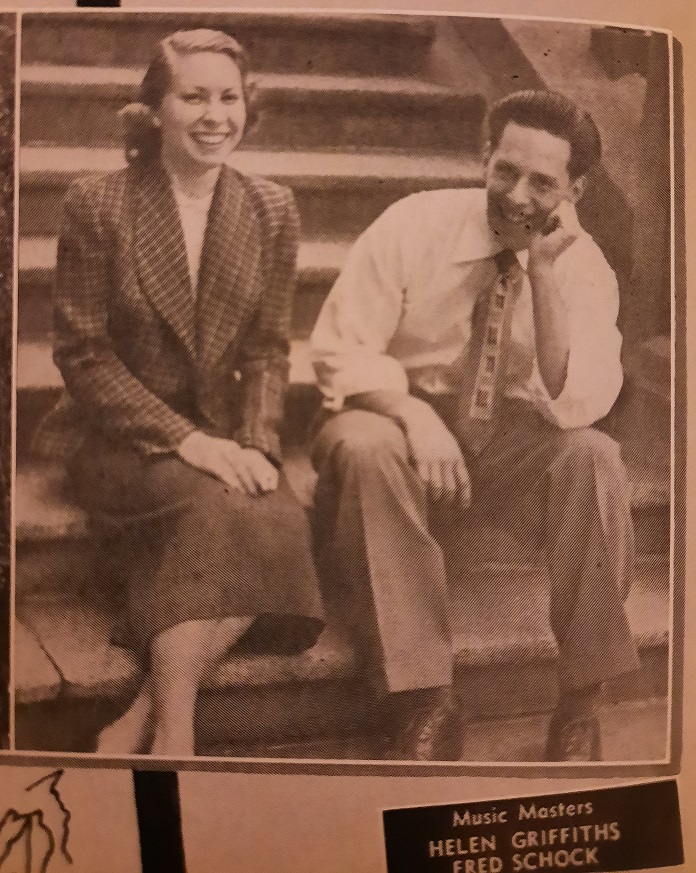
For my brother, coming of age officially occurred when he had his Bar Mitzvah at the age of 13. I never had an “initiation into the club,” so to speak. My issues with religion will be dealt with, if at all, at a later date (it’s now 2020).
Getting my driver’s license and thus migrating from delivering groceries via wagon to transporting them in Dad’s ‘36 Plymouth was a significant moment for me.
While my brother occasionally let me drive on back streets before I was sixteen, Dad was my official instructor once I received my driver’s permit. When it came time to take the driver’s test, my cousin Hank offered to take me while I was spending a week with his family in Easton, PA. I was very excited and thought it would be much easier in a small town than in Philly. I hadn’t considered the hills that are prominent in Easton and, sure enough, the examining officer had me stop at the top of a large one (it seemed giant at the time) and use the handbrake to hold position. Boy was I nervous. When we finally returned to the station, he said “passed” and I breathed a sigh of relief. I couldn’t wait for Mom, Dad and Paul to pick me up on the following Sunday; I wanted to tell them tell them the news. On the way home, I asked Dad if I could drive. When he said “next time”, I became quiet and stared out the window as the miles went by.
I was really excited when my father purchased a 1948, cream-colored, Chrysler Sedan. When he brought it home from the dealership, I jumped into the back seat and glared at all the lights and instruments on the dash board. What a car!
Now that we had two cars, I was thinking that I could drive the Plymouth to school. Didn’t happen!
Senior Trip and High School Graduation
Our senior trip involved a train ride from Philadelphia to New York City prior to a boat ride up the East and Hudson Rivers to West Point.
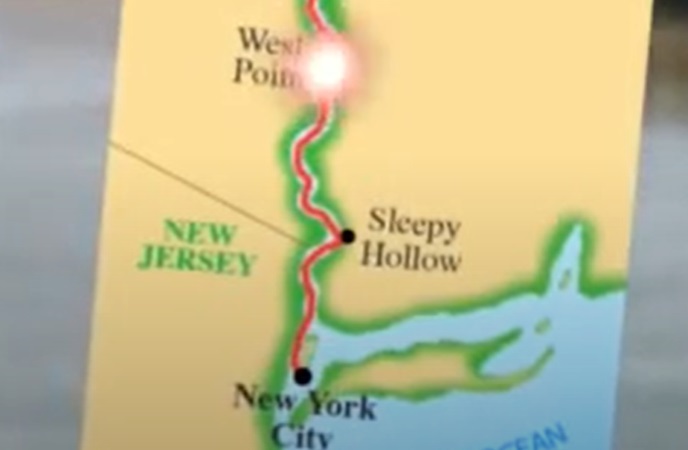
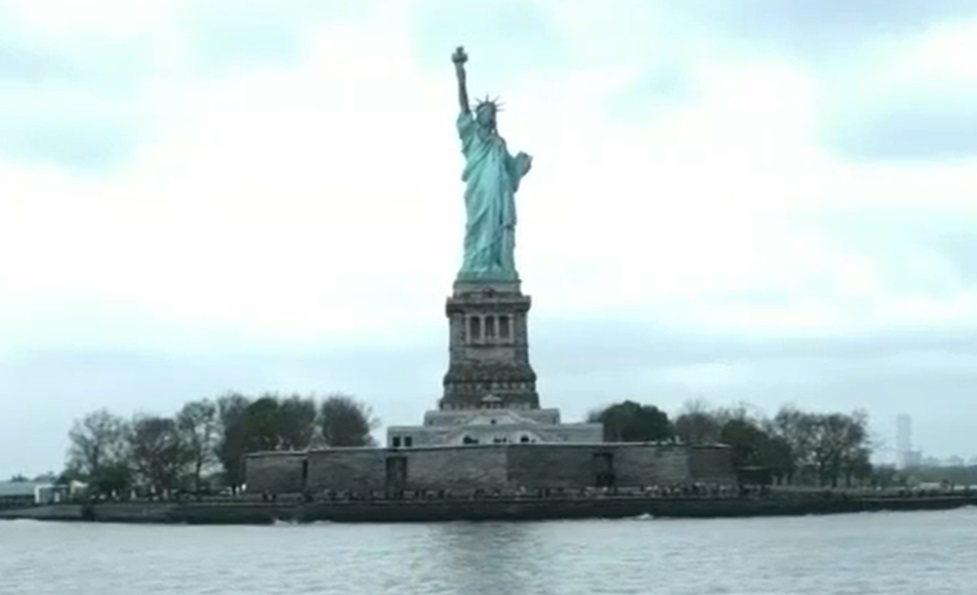



The trip was special in a number of ways. Although I had seen the Statue of Liberty many times from the Pulaski Highway and had often seen the Hudson River from the West Side Highway on our way visit aunt Martha and uncle Nat, I had never seen the beauty of the Hudson, the Statue of Liberty, the New York skyline, the New Jersey Palisades, Sing-Sing Prison or anything north of the NYC from a boat. What a treat! Our yearbook clipping says it all.
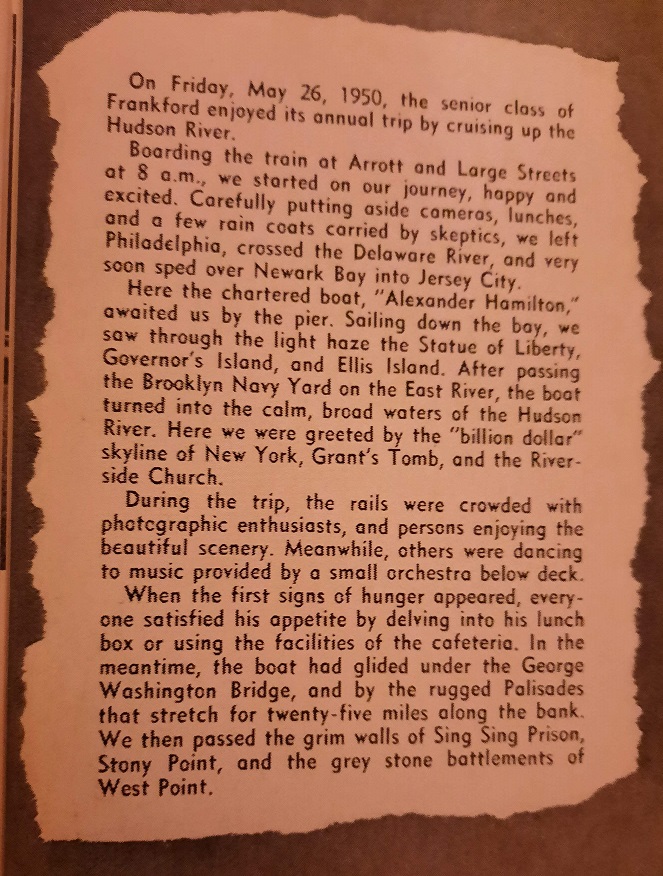
(Note: the use of “his appetite . . . his lunch . . .” in the above description)
When my senior class assembled in the school auditorium for grades day, I received my card and saw that I was 238 out of 256, not in the top ten percent for sure. I was fearful of what my parents would say. Therefore, I changed the 2 to a 1 and, I don’t think, they ever noticed. If they had, they kept it to themselves. More than likely, they were buoyed by the fact that I had been offered a music scholarship to Temple University. In the end, I turned it down and enrolled at Temple in pre-med having talked myself into wanting to become a surgeon. Music never seemed a career option.
While some of my classmates, according to whispered stories, came of age sexually, my attention was drawn to seeing a girl in the hallway every morning between classrooms. When she smiled at me one day, I became transfixed and couldn’t wait to watch for her the next morning. We never dated although I did go to a party one Saturday evening and, to my surprise, she was there. My parents, of course, ruined the evening saying that I had to be home by eleven. “Can I leave there at 11?” All I received was non-negotiable “No!” All during the gathering I kept looking at my watch. Parents!
After some time had passed, I had my first “date” – if seeing someone after classes and talking counts. It was with a member of the orchestra, a ‘cello player named Alma Dean SS. Believe it or not, on several occasions she drove to school on a motorcycle toting the instrument on the rack behind her. I think it was the combination of the motorcycle, the ‘cello and her gumption along with a demure personality that caught my attention. On several evenings when my parents had taken the Chrysler to visit friends about 30 minutes from home, I would take the Plymouth for a “short drive” – about five miles – hoping to see Alma Dean “by chance.” When we finally had a going-somewhere-date, I took her to see a movie in “my” Plymouth. Back at her place, we stood at the back door, which she had opened, and talked. After a while her father called out, “Alma Dean, “it’s time to come in”. I winced and then when he said it again we, quite unexpectedly, kissed before saying goodbye. I didn’t sleep that night.
My extramural activities centered on sports as a part-time basketball player and full-throttle baseball watcher. In was during lunch breaks that I discovered an ability to shoot what was then known a “two-handed set shot” and convert underhand foul shots consistently. Playing basketball started to consume my interest. As a year passed I improved as others grew taller and taller; I was stuck at 5’8”. That dampened my hopes of ever playing on the high school team. I couldn’t defend against 6 footers and I couldn’t dribble past them. All I could do was shoot. It was fun to discover that the hands and the eyes complimented one another.
In the ‘40s Philadelphia had two major league baseball teams: the Phillies and Athletics – National and American league teams, respectively. For many years they shared a commonality: the basement in major league standings. We use to call them the strongest teams because, by sitting in the basement, they held up all the other teams – on paper, of course.. And then in 1950 a team of many rookies won the National League pennant by defeating the Brooklyn Dodgers on the final day of the season in extra innings. The city went wild. Generations hadn’t ever experienced anything like it. It was the first time the Phillies had won the pennant since 1915. My father even displayed a large photograph of the team in the store. It didn’t matter that they lost to the Yankees in the World Series. With Robin Roberts, Del Ennis, Andy Seminick and Richie Ashburn in starring roles, the Whiz kids had made their mark in baseball lore. And I had moments and memories never to be forgotten.
Paul Whiteman Teen Club TV and Radio Shows
After graduation from Frankford in February, January 1951, I auditioned for the Paul Whiteman’s Teen Club and, after gaining my father’s permission to be a participant, appeared on the TV show in Philly.
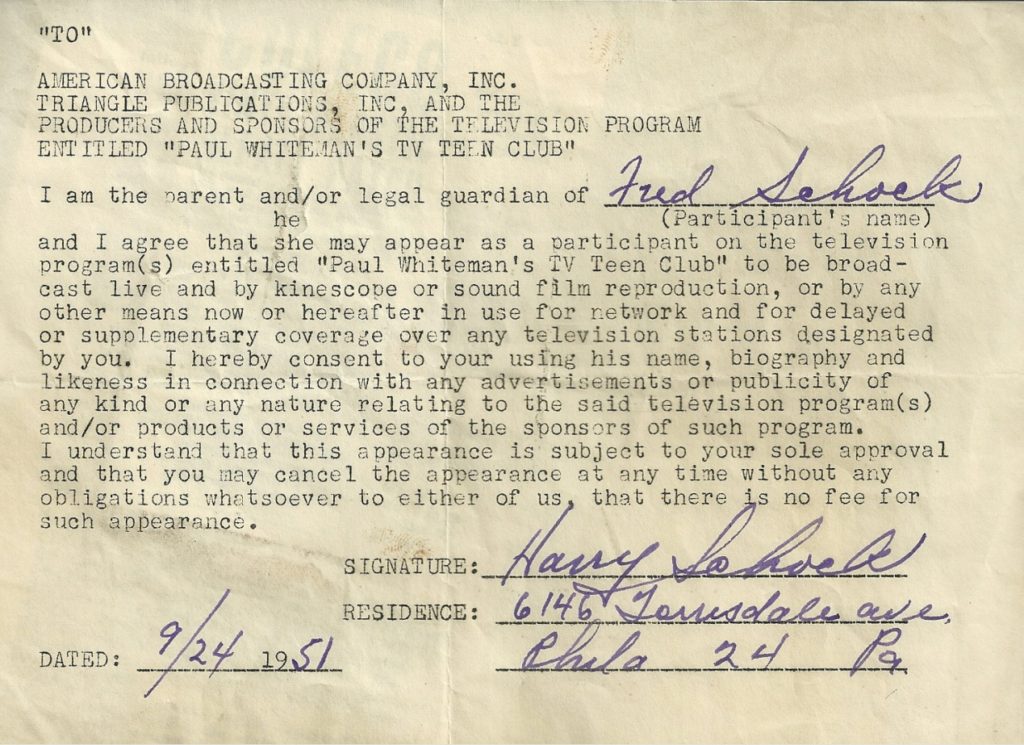
After the TV show ended, Dick Hayman, the orchestra leader and arranger invited me to go to NY to appear on the radio show version. What a thrill. In all the excitement, I hurried out of the studio, took the subway and then the trolley home. While sitting on the subway, I noticed a couple of riders looking at me from time to time. After I finally made it home, I saw my parents smiling and then my father said “go look at your face.” Yee gads! No one had told me to remove makeup before leaving the studio; I had perspired so much that my face was streaked with rivulets. That ended my thinking the subway riders had possibly seen me on TV.
A week later I took my first by solo train ride to New York City for Whiteman’s Teen Club radio presentation. After arriving a Penn Station, with sax and case in hand, I stopped by a restaurant for a tuna-salad sandwich: I couldn’t believe how expensive it was. And then it was on to the theater for the afternoon rehearsal prior to the evening show. As I walked into the theater proper, I saw Whiteman on stage sitting at a table in front of a mic, dressed in red plaid, minus his girdle (he looked great in a Tux).
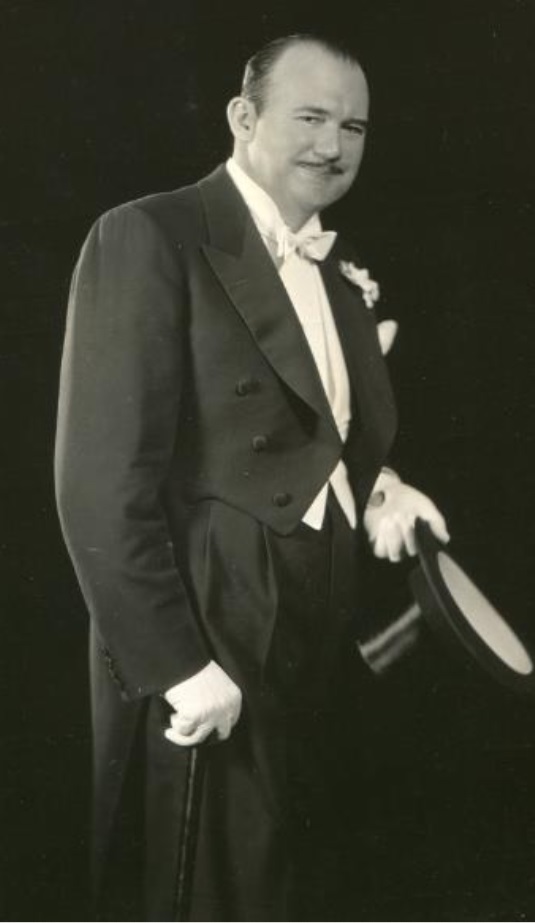
He saw me come in and said over the loud-speaker system, “Hi Freddy”. I couldn’t believe it. It’s significance became even more meaningful – if that could be – when, during the show, the director indicated that Whiteman had three minutes to kill. With ease, he told a story about being in Berlin to conduct a concert and, while waiting in the lobby for a taxi, saw Fritz Kreisler, the renowned violinist, who was also waiting for a taxi to take him to a different concert hall.
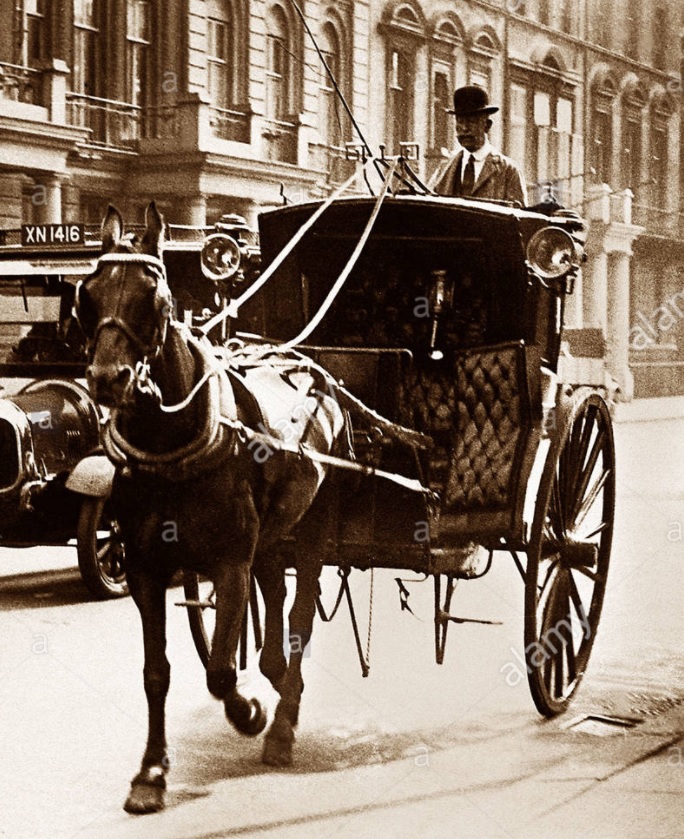
When only one came, they agreed to go together to their venues. It was raining and Whiteman, out of respect and admiration, said that he would sit outside the horse-drawn carriage next to the coachman: inside was only large enough for one passenger. Kreisler, however, insisted that Whiteman sit inside and that he would keep the coachman company. When Whiteman finished the story, all I could think about was “that man had called me ‘Freddy.’” At home I was always Fred and at school, most of the time, the endearing, and sometimes not so, “Schockie”. That experience somewhat solidified my “rite of passage” into the world of adulthood at the tender age of 17. This brief entry into the professional world became a “do you remember when” moment that had a full-throated bearing on my re-entry a year later.
In contrast, the following year was a downer for a number of reasons. The US was at war in Korea; soon after my brother’s marriage, he and Dad became alienated and the family estranged; I went to the Temple U chess hall when I should have been going to classes; not being involved in music, I turned to fraternity life and missed more classes; I was taking five, three-hour courses that didn’t seem to have anything to do with becoming a surgeon and my mother had major surgery followed by several scary setbacks.
All began to crumble in January 1952 when Dr. Brown, professor of English Composition 101 returned our term papers. Mine was titled The Use of Drugs in the United States. To my surprise, it contained two grades, a C and a F. When I asked why two grades, he said, “C for content” and, about the other he asked, “what’s the name of the course, Fred?” The writing was on the wall, his grade(s) for the paper only confirmed it.
The bubble burst when I received a dismissal letter from the Dean of Undergraduate Studies. I immediately made an appointment and received nothing more than a hand shake and “best wishes.” I had failed to clean up my act by the end of second semester. By that point I had squandered any hope of becoming a surgeon and thus said goodbye to Temple. I hadn’t yet learned that choices have consequences. After a couple of weeks working in the store and pondering the possibility that I would be drafted into the infantry, I enlisted into the US Air Force and it was “Off we go, into the wild blue yonder . . .”
Coming of age had its challenges but I had no idea what growing up really meant until I arrived at Sampson Air Force Base, NY for basic training.